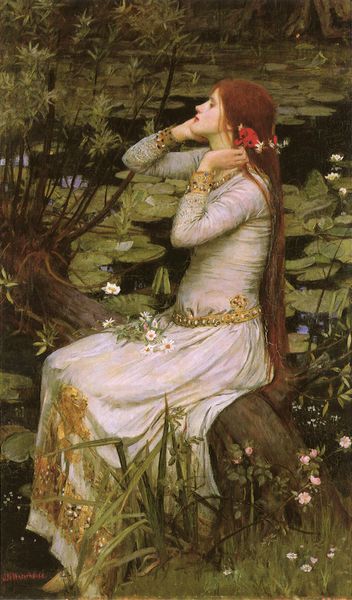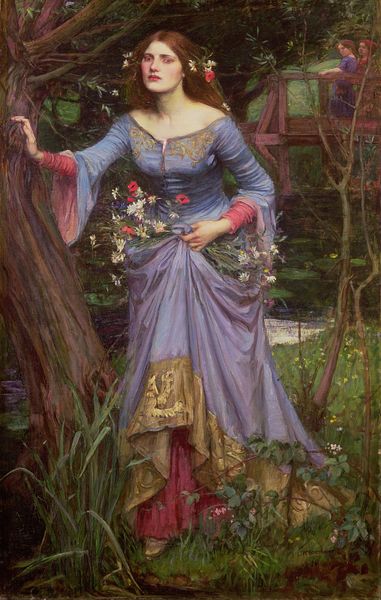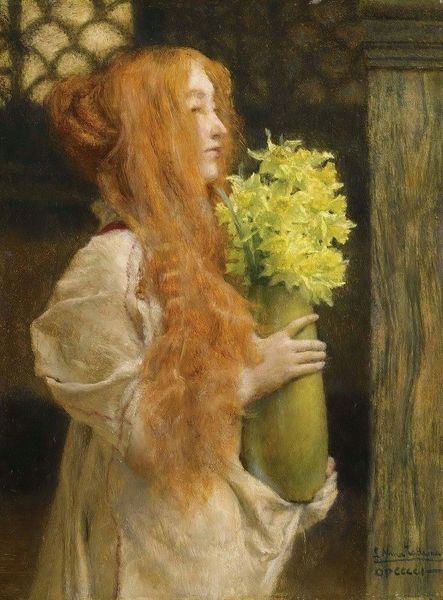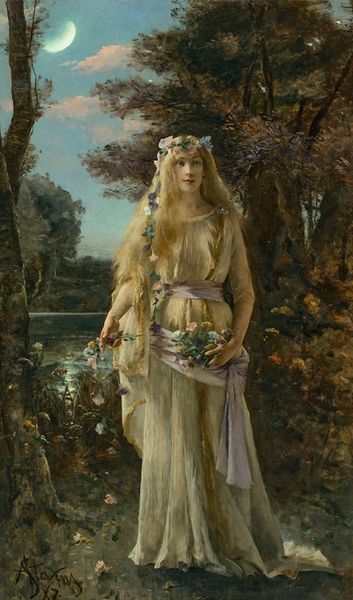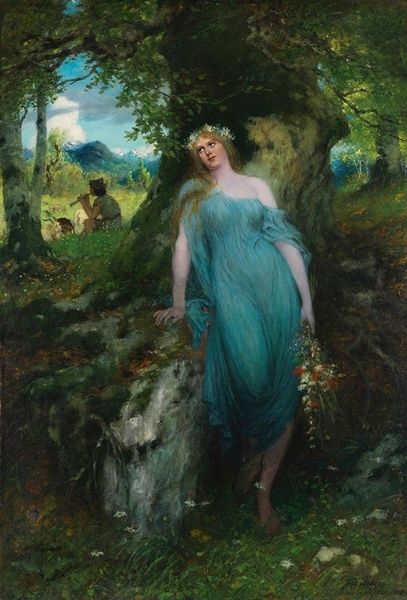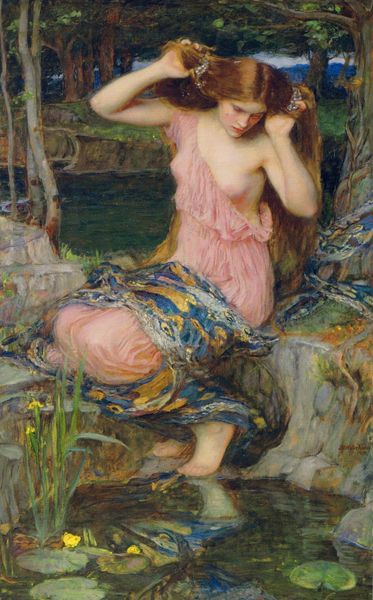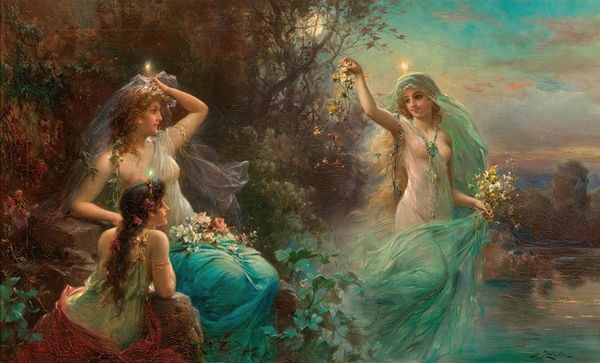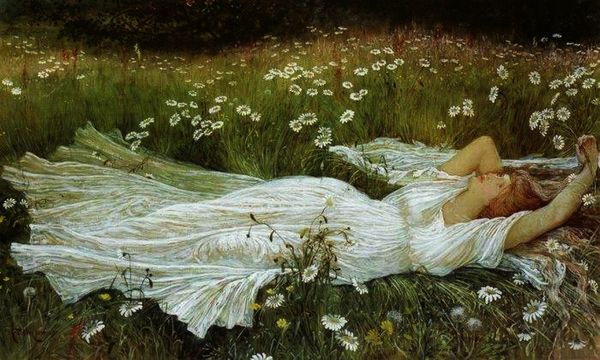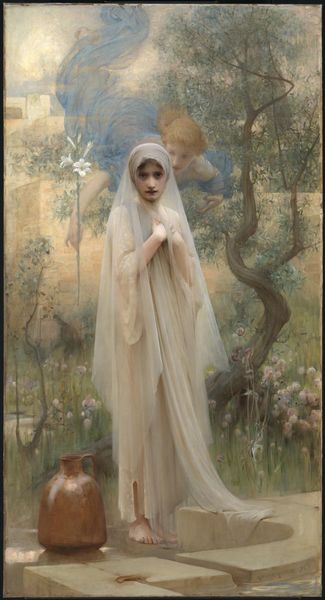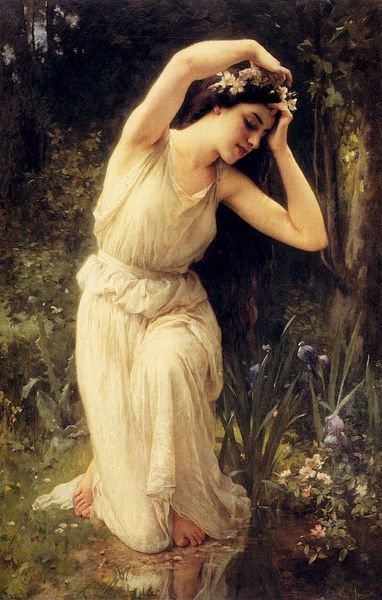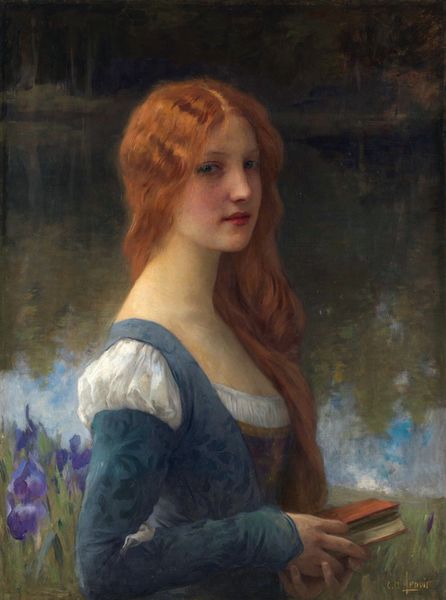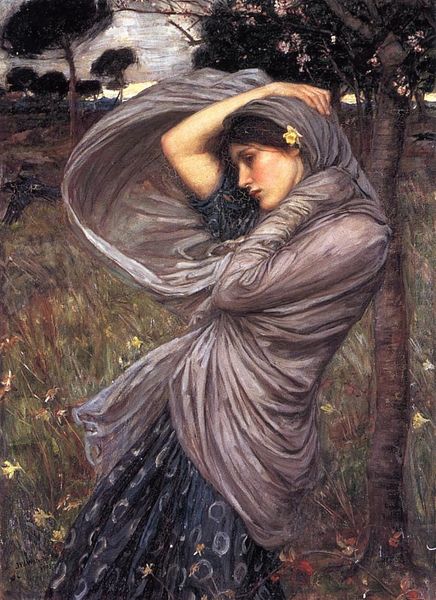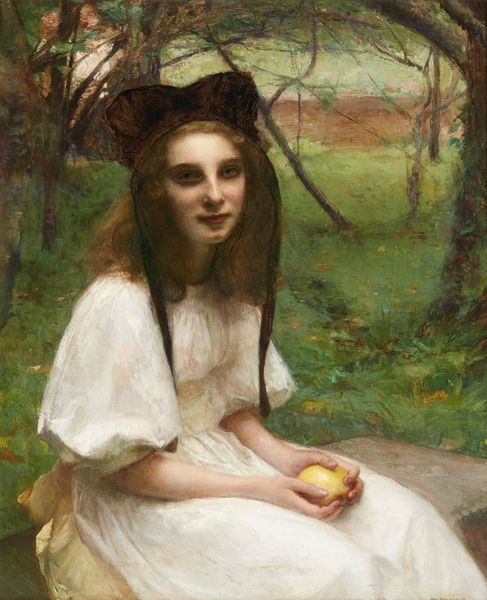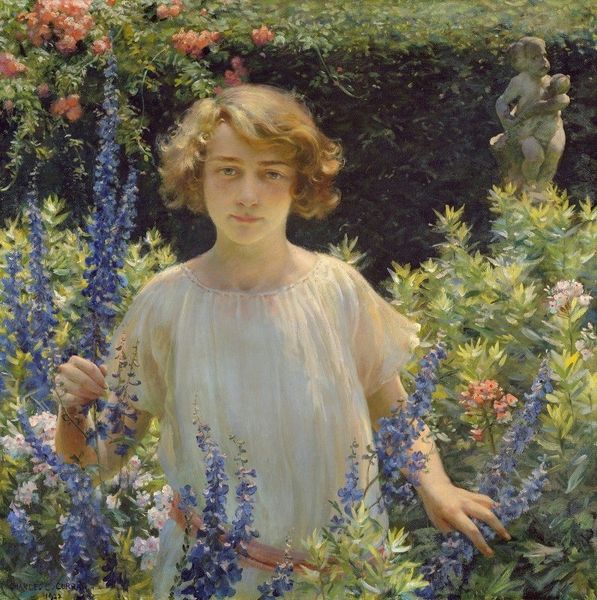
Copyright: Public Domain: Artvee
Editor: This is Pascal-Adolphe-Jean Dagnan-Bouveret's "Ophelia" from 1900, rendered beautifully with oil paints. I'm immediately struck by the painting's ethereal quality, it is almost like she's a ghost emerging from the reeds. What do you see in this piece? Art Historian: Ghostly indeed! The Romantic obsession with capturing that precise moment just before light completely fades, both literally and figuratively. Isn't she radiant, this melancholic muse? She feels plucked straight from the pages of Shakespeare, draped in white linen as she gently treads into the pond to her demise. Can't you almost smell the wet grass and hear the faint buzzing of dragonflies? Editor: Absolutely, I love how the greens seem to swirl around her figure like the river might swallow her any minute. You mentioned Romanticism—is that why she seems so tragically beautiful? Art Historian: Partly. Romanticism adored these kinds of emotional extremes. Think windswept moors and unrequited love. But it is that hint of Academic Art and it's control over composition here that really gives this "Ophelia" its impact. The Academic in Dagnan-Bouveret shows in the restraint he wields in her emotional presentation, where many from Romanticism would have chosen madness, here she is reserved. And do you notice how her gaze avoids yours, hinting at inner turmoil without giving it all away? Editor: Yes! And now that you point it out, that controlled sense of emotion really brings it together. Almost like a staged grief. Art Historian: Exactly! A portrait of a controlled loss. Don't you feel like the artist wanted us to empathize but from a safe distance? Perhaps, like peering into a perfectly preserved dream, where sorrow lingers, elegant and contained. Editor: That's beautiful, it totally reframes the whole picture for me. Thanks for this insightful little journey! Art Historian: My pleasure! Remember, art's true magic lies not just in what we see, but what it helps us imagine, what parts of ourselves we encounter in its reflections.
Comments
No comments
Be the first to comment and join the conversation on the ultimate creative platform.
